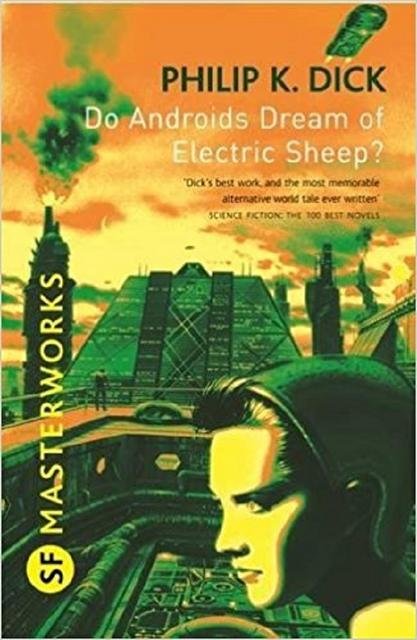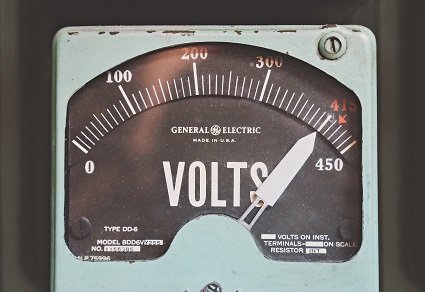
REVIEW – Do Android's Dream of Electric Sheep?
This is a book I have mentioned many times in past blog posts, as it has played an important role in my experience as a reader, and probably marks the point between just being someone who read occasionally, to becoming an avid reader. I first read it over twenty years ago, and have returned to it again a couple of times since. This includes late last year when I decided to refresh my memory on the writing style and storytelling of one of my favourite authors, Philip K Dick.
I talked yesterday about what made me choose this book, so I wont go further into details on that here. But I am glad I made that choice. I did struggle as a reader for the first half of my life. I just found it difficult to keep my attention on one piece of writing for the length of time needed to complete the reading of one novel. And therefore hardly ever read novels. Eventually along the way I grew out of that, and this is where that started.

It is Science Fiction that drifts more towards the philosophical spectrum, and away from the classic Space Opera that a lot of people often equate with the genre. It is also typical of a lot of Philip K Dick's writings, in that it deals with the nature of reality, and what it means to be human. Just what is reality, and how can we be certain that it is real? Is it the only reality, or are there are versions? And what about being human. My memories tell me I am human – can I trust those? This last one in particular is a core theme in Do Androids Dream of Electric Sheep?
Rick Deckard is a police bounty hunter, on Earth in the near future (relative to when the book was published). Earth has undergone devastating wars that have left it in a state that is no longer ideal for human habitation. Most people have moved off world as a result. The off world planets allow the use of androids to do the work of humans, and the development of them has improved drastically over the years. To the point where the latest models are almost impossible to differentiate from real humans.
Androids are forbidden on Earth and it is Deckard's job to hunt them down and 'retire' them if they show up. And recently a group of the highly advanced Nexus-6 models have arrived and settled into San Francisco where Deckard is located. With the androids having killed Deckard's senior, the task falls to him to track down the remaining members of the team.

As the story starts we are introduced to the Penfield Mood Organs, devices that one can call up a code to have one's emotional state manipulated to something more desirable. Deckard's wife Iran makes use of the device regularly to alter her otherwise depressed state of mind. Whilst Rick himself dreams of owning a real animal, believing it will bestow a certain status upon him, and therefore a better state of mind. Most real animals are extinct, and therefore extremely expensive, so an electric one may be his only choice. It isn't the same thing, but perhaps it will have to do.
Deckard makes use of Empathy Tests (a device that reads fluctuations in the pupil of the eye) to test any suspected androids, as this is the only valid way of determining if one is in fact not human. But to apply the test one has to first find them and convince them to sit the test.
Deckard pursues his mission of tracking down the fugitives, making use of Rachel – an android in the service of the corporation that manufactures them – to help come to a more complete understanding of them and their nature. Along the way he finds himself challenged by feelings for Rachel, despite the taboo nature of such a thing.
The value and meaning of life, and even whether he himself could have complete certainty on his own human status are matters that Deckard is forced to face as he deals with the fact that he earns his wage by taking life from beings that are just seeking a better life. The very thing he himself wants.

He seeks solace in Mercerism, a new religion that teaches empathy with each other, and working for the good of the community. A merging into a core consciousness seems to be achieved through the use of Empathy Boxes, and he is guided to complete his task after having seen the now dead Wilbur Mercer himself in a vision.
Philip K Dick has delved into the world of ancient mythology and even religion to define and shape Mercerism. This is a theme he explores a lot in his other novels, along with 'mind altering drugs' (represented here by the Penfield Mood Organs).
Deckard is forced to confront some deep uncertainties about his own nature, especially in the form of his own lack of empathy for the android's plight. And left to question the significance of his own lack in that area, given empathy is the key difference between humans and androids, and the very thing he searches for in the tests he conducts.
Do Androids Dream of Electric Sheep is a classic of the Science Fiction genre, written by one it's most proficient authors. It lead to the film Blade Runner, which itself is now a classic of the Cyberpunk genre. I highly recommend it.
The novel was nominated for the 1968 Nebula Awards.
Images from unsplash.com and used with permission.
Thank you for taking the time to read this. If you liked it then please like, comment, and follow.
@naquoya
 |  |
|---|---|
Links to earlier works
- Fiction
My Fiction Writing Collection
Writing Myself Out of Existence
When the Levee Breaks
- Blog Posts
Notes #1 - #39 - Notes From An Amateur Writer Collection
Notes #40 - Read, Write, and Face the Future
Notes #41 - What Are Some Of Your Favourite Books?
Notes #42 - Website Review: Fiction University
Notes #43 - Seeking a Community Of Writers
Notes #44 - What Are Some of Your Favourite Characters?
Notes #45 - When Madness Came Knocking
Notes #46 - Why Do I Write?
-Ramble On (Humour based travel blog)
Introducing My New Travel Blog
Making a Deal With the Devil
-Poetry
